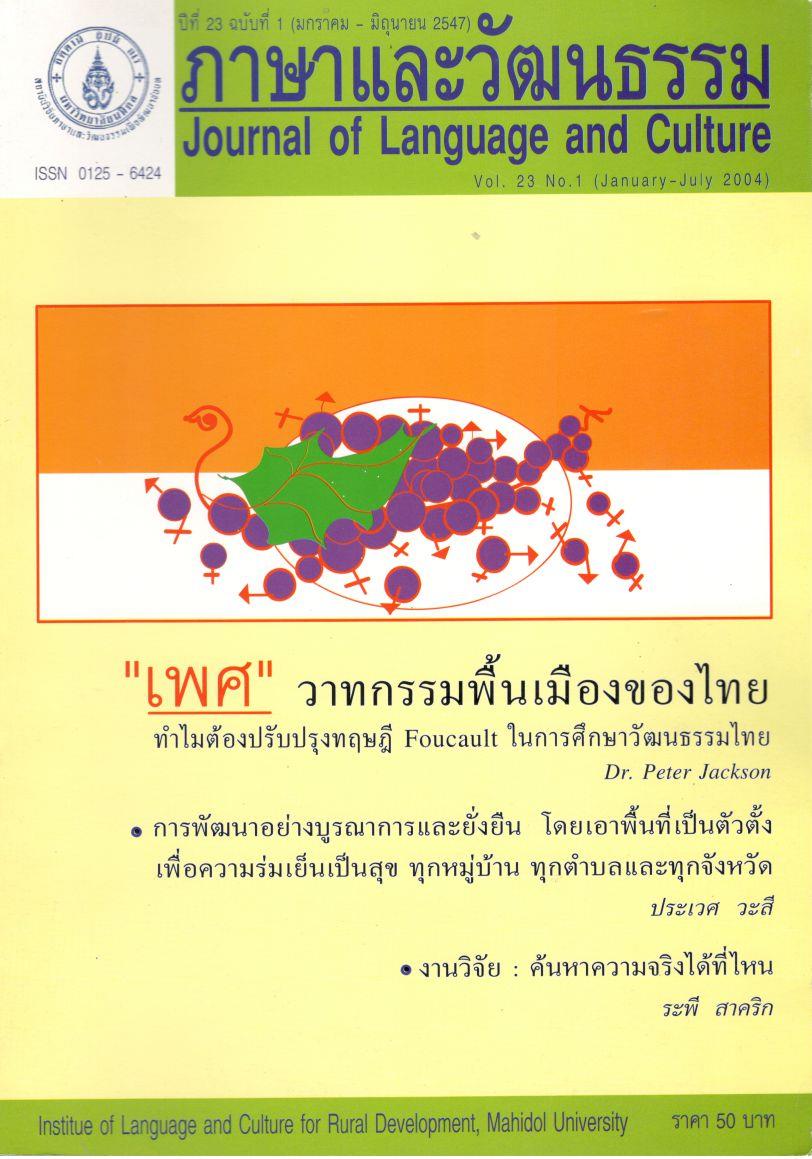Factors That Cause Miscommunication Between Japanese Managers and Thai Employees
Main Article Content
Abstract
The study was aimed to understand the demographic characteristics, the language usage in the workplace, and the frequency of miscommunication between Japanese managers (JMs) and Thai employees (TEs) working in Japanese companies in Thailand. Their levels of general communication skills, general knowledge, social system awareness, cultural awareness, and general attitude were also aimed to survey. In addition, the influences of the demographic characteristics, language usage and their levels in five communicative factors on miscommunication were considered.
The research was conducted using quantitative analysis based on questionnaires. The data was collected from 140 JMs and 140 TEs during March and April 2003. This study was limited to oral communication and focused on the time of giving and receiving instructions in the workplace.
The findings of the research were as follows: The JMs the TEs preferred using two languages rather than relying on any one language. English was most often used as the main language. Communication between the two groups mostly succeeded. Miscommunication occurred in 10 to 30% of all conversations in the workplace.
The factors confirmed to have and influence on the frequency of miscommunication between JMs and TEs were general communication skills, general attitude (for both groups), age, number of language(s) used and general knowledge (for TEs). While the factors that were not confirmed to have such an influence were educational level, length of time working, main language used, social system awareness, cultural awareness (for both groups), gender (for TEs), age, recruitment method, number of language(s) used and knowledge (for JMs).
For further research, it is recommended to conduct a qualitative method study by using interviews. Special research on Japanese people who regularly use Thai to communicate with Thai people is also recommended, because the group was found to exist sufficient quantity. In addition, studying Thai and Japanese cultures by comparing directly is necessary, because such studies are uncommon.Article Details
The articles featured in the Journal of Language and Culture (JLC) constitute academic works representing the viewpoints of the respective author(s). It is crucial to note that these opinions do not necessarily reflect those of the Editorial Board.
All articles published in JLC are released under the Creative Commons Attribution 4.0 International License (CC BY 4.0). This license grants permission for unrestricted use, distribution, and reproduction in any medium, provided proper credit is given to the original author(s) and the source.


